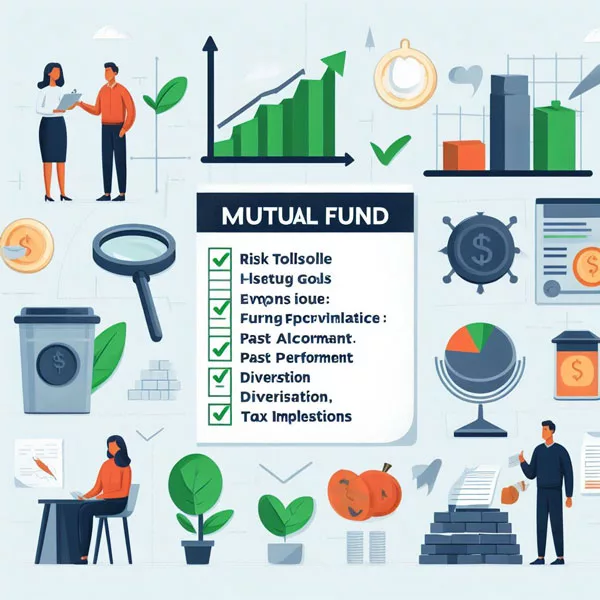Which of the following is not a common feature of a financial institution?
Table of Contents
Financial Institutions Decoded: Features, Fables, and a Few Surprises!
Introduction
Ahoy, savvy savers! Ever wandered the aisles of your local bank or credit union and wondered, “What’s really on these shelves?”
Financial institutions, with their grand facades and polished counters, often feel like the supermarkets of the financial world. But what are their staple products, and what are the myths?
Let’s dive in, especially for those of us eyeing those golden retirement years.
The Usual Suspects – Common Features of Financial Institutions
Depository Services
The bread and butter of any financial institution. Whether it’s a savings or checking account, this is where most of us start.
Loan and Credit Services
From the dream home’s mortgage to that credit card for spontaneous splurges, these services fuel our big purchases.
Currency Exchange
For the globetrotters among us, whether you’re buying souvenirs in Paris or tapas in Spain.
Safe Deposit Boxes
The modern-day treasure chest, minus the pirate ship. A place for your most prized possessions.
The Not-So-Common Features (Or Myths?)
24/7 Personal Financial Advisor
While it sounds dreamy to have a financial guru available at 3 am, not every institution offers this luxury. And if they do, I’d love their number!
Unlimited Free Toasters
Ah, the good old days of promotional gifts. Sadly, these aren’t a standard feature. And let’s be honest, how many toasters does one need?
Guaranteed Investment Returns
If someone promises this, run! Or at least, walk away briskly. No one can guarantee the market.
The Secret Vault of Endless Wealth
I’ve searched high and low, and spoiler alert: it’s a myth. If you find it, though, drinks are on you!
Why It Matters – Navigating Financial Institutions in Retirement
Safety First
Your hard-earned savings deserve a safe home. Ensure your institution has a good track record and proper insurance.
Maximizing Benefits
From juicy interest rates to member perks, make sure you’re getting the most bang for your buck.
Avoiding Hidden Pitfalls
Those sneaky fees that pop up uninvited? Stay vigilant and read the fine print.
Blogging & AI: The Modern Way to Navigate Finance
Your Financial Journey on Display
Ever considered documenting your financial adventures? A blog can be your diary, guidebook, and community all in one.
AI Assistants in 2023
With tools like ChatGPT, you can decode financial jargon in real-time. It’s like having a pocket-sized financial guru, minus the hourly rate!
Building a Community
Connect with fellow retirees online. Swap tales, tips, and maybe even toast (with those free toasters) to your financial successes.
Conclusion
As we close our financial ledger for today, remember that knowledge is power. By understanding the ins and outs of financial institutions, you’re setting yourself up for a prosperous retirement.
And if you ever decide to hunt for that mythical vault of endless wealth, drop a line on your blog. We’d love to read about it!
Frequently Asked Questions
What’s the primary difference between a bank and a credit union?
At their core, both offer similar services. However, banks are typically for-profit entities serving shareholders, while credit unions are not-for-profit and serve their members, often offering better interest rates and lower fees.
Are online banks safe?
Most online banks are just as safe as traditional ones. Ensure they have FDIC insurance (or the equivalent in your country) and always use strong, unique passwords.
How do interest rates at financial institutions work?
Interest rates can be both what you earn (on savings accounts) and what you owe (on loans). They’re determined by various factors, including central bank rates, economic conditions, and the institution’s own policies.
Why do some banks charge fees for basic services?
Banks have operational costs, and fees are one way to cover them. However, competition and customer demand have led many banks to offer fee-free options or ways to waive those fees.
Can I belong to multiple financial institutions?
Absolutely! Many people use different institutions for various needs, like one bank for everyday checking and another for savings or investments.
How do I know if my financial institution is offering competitive rates?
Regularly compare their rates and services with others in the market. Online comparisons and financial news sources can be handy.
What’s the deal with “high-yield savings accounts”?
These accounts offer higher interest rates than traditional savings accounts. They’re a great way to earn more on your money, but always read the fine print for any conditions.
How has AI impacted financial institutions?
AI has revolutionized many banking processes, from customer service chatbots to fraud detection. It’s making banking more efficient and user-friendly.
I’ve heard of “robo-advisors” at financial institutions. What are they?
Robo-advisors use algorithms to offer investment advice and manage portfolios, often with minimal human intervention. They’re a low-cost alternative to traditional financial advisors.
Can I trust financial advice from a blog or online community?
While many offer valuable insights, always cross-reference with professional sources. And remember, personal finance is just that – personal. What works for one person might not work for another.
Speaking of blogs, how can starting one help with my financial journey?
Blogging can be therapeutic, educational, and even lucrative. Documenting your journey, sharing insights, and learning from others can be immensely beneficial.
Plus, with AI tools in 2023, you can get content tips and even automate some of the processes.
Are all banks and credit unions essentially the same?
While they might seem like different brands of cereal, each has its unique flavor. Look for the one that suits your taste.
Can I trust online-only financial institutions?
Many are as trustworthy as brick-and-mortar ones. Just do your homework, check reviews, and ensure they’re insured.
How often should I review my financial institution’s offerings?
Think of it as spring cleaning. An annual review can help declutter your financial life.
I’ve heard of AI financial advisors. Are they reliable?
They offer valuable insights but always pair them with human advice. It’s like having salt AND pepper.
How can starting a blog help me navigate financial decisions?
It’s a space for reflection, research, and feedback. Plus, with AI tools, you get insights tailored just for you.








